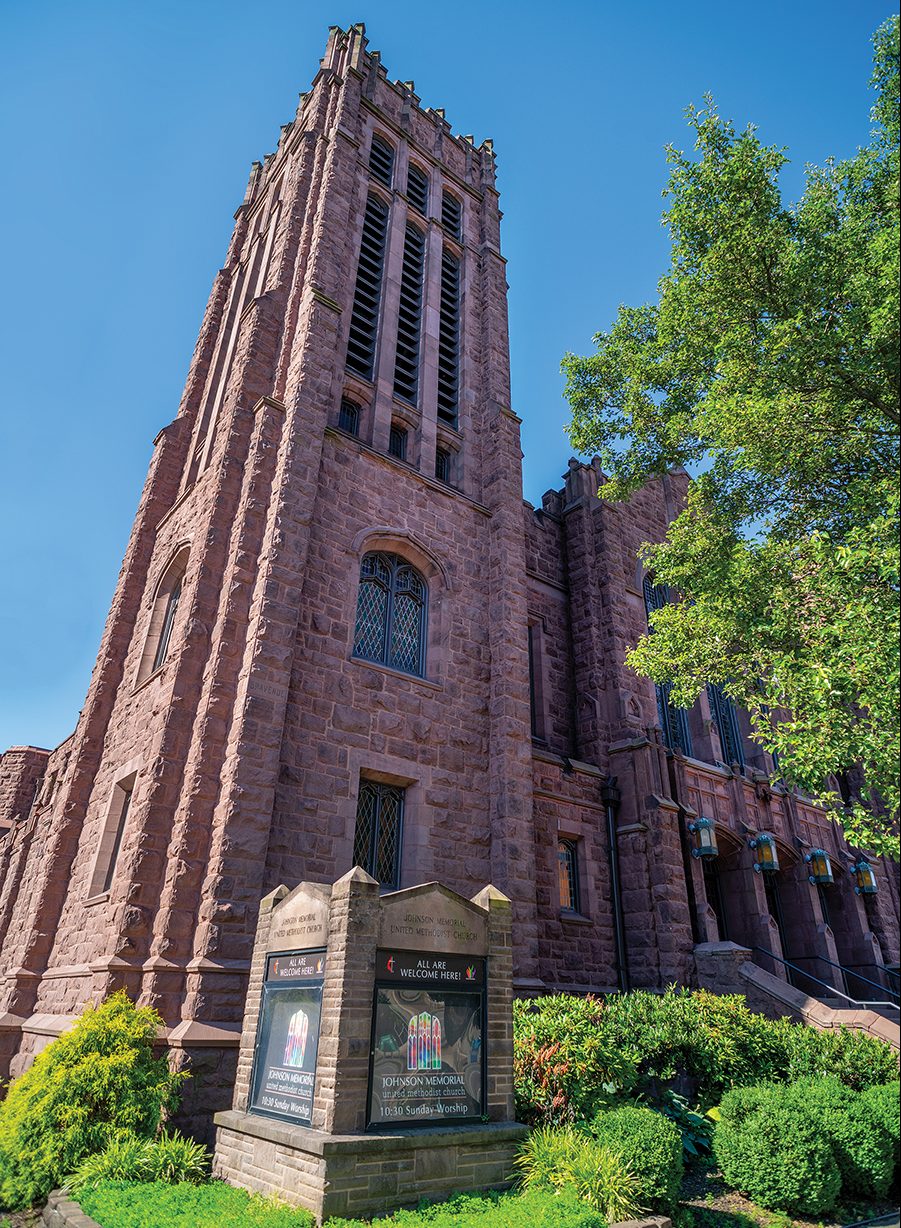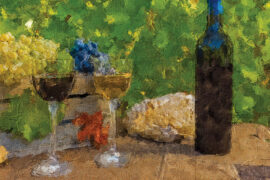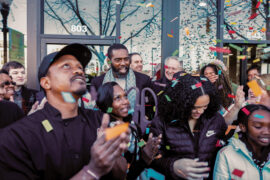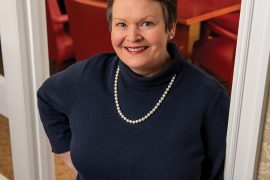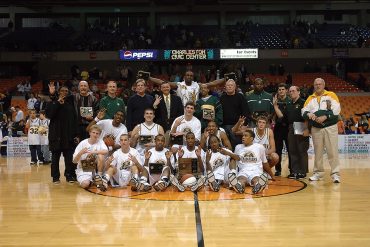A series of fires over the years that destroyed the church have not dampened the spirit of a loyal congregation.
By James E. Casto
HQ 110 | SUMMER 2020
For decades, Johnson Memorial United Methodist Church has been an iconic presence in downtown Huntington. To generations of Huntingtonians, its handsome brownstone building on the corner of Fifth Avenue and 10th Street has been as familiar as the Cabell County Courthouse or Huntington City Hall.
This year Johnson Memorial marks its 150th anniversary. But a planned celebration of that major milestone is now clouded in uncertainty, thanks to the coronavirus pandemic.
“We had planned a number of things for a big event on Sunday, Sept. 27, but now everything’s up in the air,” said the Rev. Terry Deane, senior pastor at Johnson Memorial. “We wrote to all our former pastors who are still living and invited them to join us at our celebration that day. We planned an informational lecture and walking tour of our beautiful stained-glass windows. And, of course, we were going to have a nice reception. Now we’re not sure what we will be able to do.”

Johnson Memorial is not only one of Huntington’s oldest churches, it’s actually older than the city itself. The West Virginia Legislature chartered the city of Huntington on Feb. 27, 1871. Long before that, in 1866, local Methodists and Presbyterians began using Marshall Academy as a place of worship, with the two groups holding services on alternate Sundays. Later they jointly built a chapel at Holderby’s Grove, near present-day Seventh Avenue and Hal Greer Boulevard.
Ultimately the Methodists and Presbyterians went their separate ways. In 1878, the Methodists made a decision to begin worshipping in downtown Huntington. They first rented a room upstairs over a retail store in the 1000 block of Third Avenue (currently the site of the DoubleTree by Hilton). In 1881, they bought a lot at 1022 Fourth Ave. and erected a church building there at a cost of $3,300.
The Rev. J.W. Johnson became the congregation’s pastor in 1889. A new building was needed for the church’s growing membership, and so work began on a structure at the church’s current site. Sadly, Rev. Johnson was killed in a freak accident before the new church was done. When the completed church was dedicated in 1892 it was named “Johnson Memorial” in his memory.

Fire has played a recurring role in Johnson Memorial’s long history, each time forcing the congregation to temporarily worship elsewhere.
An 1896 blaze badly damaged the interior of the church that had been built in 1892. The congregation met in various places, including the Courthouse, until a new, larger church could be built on the same site. It was completed and dedicated in 1913.
In 1935, a massive fire left the 1913 church a charred ruin. Only the building’s stone foundation was left, forcing the congregation to build once more, again on the same site. For two years, the congregation worshipped at Ohev Sholom Temple (now B’Nai Sholom) and conducted Sunday School at the old Huntington High School gym. The rebuilt church was dedicated in 1937.
Fire struck again in 2015. This time it was contained to a small area of the sanctuary, but there was widespread smoke and water damage. Again, Johnson Memorial’s congregation was welcomed by B’nai Sholom.
Deane noted that, in repairing the damage from the 2015 fire, “we took advantage of the opportunity to make our sanctuary more handicapped-accessible, removing some pews to allow for wheelchairs.”
Pastor at Johnson Memorial for the past four years, Deane is a graduate of the West Virginia University College of Law and has a master of divinity degree from the Methodist Theological School at Delaware, Ohio. Born and raised in Jackson County, she came to Huntington after pastoring a church in Ripley.
Like most other churches, Johnson Memorial has been posting its Sunday services online during the pandemic.
“Honestly, at this point I have no idea when we will be able to have live services in our sanctuary again,” Deane said. “But I’m struck by the fact that more people have been following our online services than we typically had in church before the virus hit.”

One reason may be that the online services can reach viewers far beyond Huntington.
“Right now, we’re wrestling with how to get things back to normal or near normal,” she said. “We long for the day we can reopen our preschool but we face a number of barriers in doing so.”
Deane said the church is also eager to resume its tradition of “Common Grounds” dinners. “What began some years ago as a Thursday night worship service for college students has evolved into a gathering time for our community’s homeless and marginally homeless. Sometimes we would have as many as 60 people join us.”
In light of the pandemic, the food is now presented on the church’s 10th Street steps as a brown paper bag meal.
“We’re attracting only a dozen or so people that way and hope to soon again welcome dinner-goers into the church,” she said.
“Right now,” said Deane, “our immediate future is unclear, but this is a great church with a great future. And I know that God has nothing but good things in store for all of us.”

